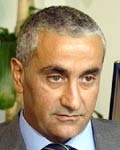 The ever expanding militarization of Energy for the USA and the UKUSA Alliance...
The ever expanding militarization of Energy for the USA and the UKUSA Alliance... The Washington Post is reporting that sweeping changes to the National Security Council will include its membership and increasing its authority to set strategy across a wide continuum of international and domestic issues.
The Washington Post is reporting that sweeping changes to the National Security Council will include its membership and increasing its authority to set strategy across a wide continuum of international and domestic issues.National security adviser and retired Marine general, James L. Jones said, "The world that we live in has changed so dramatically in this decade that organizations that were created to meet a certain set of criteria no longer are terribly useful."
The new structure, to be outlined in a presidential directive and a detailed implementation document by Jones, will expand the NSC's reach far beyond the range of traditional foreign policy issues and turn it into a much more elastic body, with Cabinet and departmental seats at the table—historically occupied only by the secretaries of defense and state—determined on an issue-by-issue basis.
Jones added, "The whole concept of what constitutes the membership of the national security community—which, historically has been, let's face it, the Defense Department, the NSC itself and a little bit of the State Department, to the exclusion perhaps of the Energy Department, Commerce Department and Treasury, all the law enforcement agencies, the Drug Enforcement Administration, all of those things—especially in the moment we're currently in, has got to embrace a broader membership."
The Homeland Security Council could be merged into the expanded NSC, although it is still undetermined whether elements of the HSC will remain as a separate body within the White House.
The Obama administration—with "powerful figureheads" such as Secretary of State Hillary Rodham Clinton and Defense Secretary Robert M. Gates—appears crowded at the top of the national security pyramid and heavy with military officials, including Jones himself and retired Navy Admiral Dennis C. Blair as director of national intelligence.
General Jones said he strongly supports increased resources for the State Department, which had become overshadowed by the size and expanding missions of the Defense Department.
A disturbing line in the Post story reads, “He [Jones] has long been an outspoken proponent of a ‘pro-active military’ in noncombat regions. He has advocated military collaboration with the oil and gas industry and with nongovernmental organizations abroad.”










(e)SP_A0012_edited.jpg)



